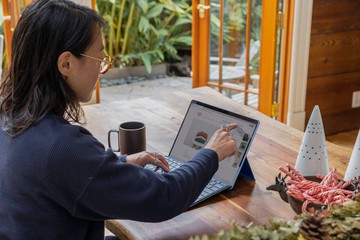The internet is not a safe place. We tend to feel comfortable there because even when people are watching and tracking our movements, we cannot see them. Most people are totally ignorant of fraud that’s taking place in real time as they use the web. This post plans to explore this topic in great detail and will offer advice on a few essential steps that you can take to protect your personal data. Keep reading to find out how you can keep yourself safe and learn about the tricks and tactics employed by cybercriminals.
Clearing data from the internet
Have you ever spent time thinking about how cybercriminals are able to access your personal data? Most are not hackers. The vast majority of digital thieves collect data from information that’s already publicly available or from dark websites that sell stolen data. Cybercrime has never been more prominent, which is why now’s the best time to start securing your data and pay for an online security firm to sweep the internet and clear your personal information from it. These organizations will be able to remove personal data from the web. Some are even able to search the dark web and determine whether or not your data is on sale. If it turns out that it is, consider changing passwords, creating new accounts, closing existing debit or credit cards, and ordering new ones.
One company that’s offering a service similar to the type mentioned above makes clear in a blog post that you can protect your data by opting out of data broker and people search sites, removing personal information from Google, and optimizing Google’s privacy settings so that your information doesn’t become public. You can also delete and opt out of apps and services you are no longer using.
While not recommended by many firms, some experts even go as far as to say that you should start using an online alias when you are making accounts. An online alias will prevent criminals from being able to ascertain your actual identity. The only problem with doing this though is that if you are locked out of accounts, you could end up being unable to get back into them due to verification issues.

Using a virtual private network
A virtual private network (VPN) is arguably one of the most effective instruments to stay safe when you are using the internet. Did you know that the risks go beyond cybercriminals’ activity alone? You also need to protect yourself from internet service providers (ISPs). These companies gained notoriety for monitoring their customers’ online activities. In recent years, many ISPs have been caught selling the personal data of their customers to marketing companies, which fuels unethical advertising through highly targeted ads. While raising the bar for classic cyberattacks, a virtual private network will prevent marketers as well as ISPs from being able to track you.
VPNs will also prevent criminals from watching your online movements. It’s not uncommon for people's Wi-Fi networks to be hijacked. If this happens, or if you start using a network that’s already been compromised, such as a public one, hackers will be able to see every single piece of data you enter on your device through the network. With a virtual private network in place, this type of exploitation is a no-go. The use of VPNs is the best way to shield yourself on the Internet and avoid data theft. These services are widely available and very affordable, which makes them a good choice for people seeking to ramp up their privacy.
Regularly cleaning your device
Clean your device on a regular basis. By cleaning your device, this page is not referring to the actual process of cleaning your phone or computer with a brush. What it instead means, is regularly running scans on your device to make sure that there are not any viruses present. Viruses can sometimes be downloaded without people even knowing. Not all viruses cause computer crashes. Some viruses run in the background farming data while people are using their devices. A viral scan will help to bring any such viruses to your attention.
If you're interested in performing regular viral scans, you need to do everything you can to find the best anti- virus software available to you. Antivirus software is widely available and should not be difficult for you to find. Be sure to do your homework and read reviews before you opt into a program like that. Other users’ feedback is hugely informative and helps you decide if the app is the right one for you. If a program has bad reviews, look for another without a second thought.
Using secure passwords
Finally, make sure that you use secure, hard-to-guess passwords to sign in to websites. This will prevent snoops from retrieving the personal information linked to your account. Here’s an example of an adverse scenario: if a malefactor gains access to the account with an online retailer you regularly buy from, they will know your shipping address and some of the credit card information, such as the last four digits of its number. There is a lot that can be done with these details.
You have absolutely no idea what constitutes a secure password? Thankfully, there are programs available online that you can use for free that will generate passwords for you. You can also buy USB plugins that act as passwords. Two-factor authentication is one more thing on your checklist. It’s an incredibly effective way to protect your passwords and accounts against unauthorized access.
Bottom line
You should do your best to shield your personal information when online. The guidance provided here can point you in the right direction. Make sure that you find a good VPN and antivirus program to complement your cybersecurity strategy.
